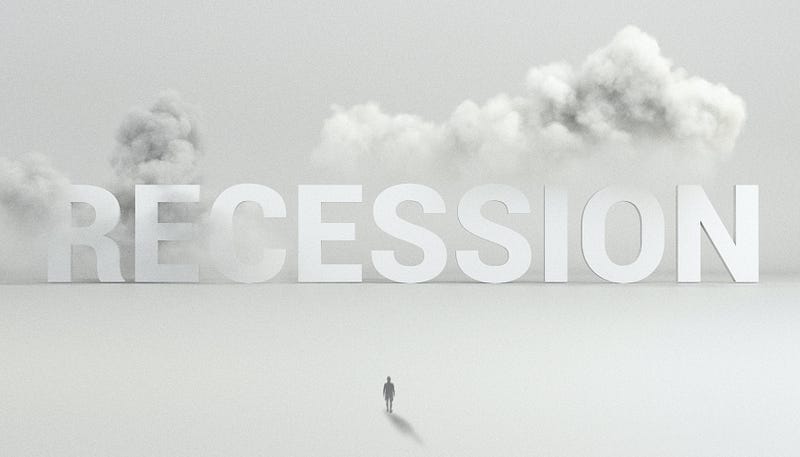Part 2 of a Discussion of Peter Foster’s Why We Bite the Invisible Hand Chapter 9 “The Invisible Metaphor”
In the last blog, we examined the meaning of the Invisible Hand metaphor. Now we want to look at several who challenged its ability.
Adam Darwin
Foster discusses a lecture by Matt Ridley in 2012 where he drew parallels between the Invisible Hand and Darwinian evolution.
The common theme of Smith and Darwin, Ridley said, “is emergence: the idea that order and complexity can be bottom-up phenomena that need no designer. Both economies and ecosystems emerge.” (p. 191)
As we saw in the Darwin chapter, he was influenced by Smith’s emergent order.
Ridley made two interesting observations.
First, free market promoters should reclaim the word, collectivism, from the left.
…note how markets represent the greatest possible collective effort, although from the bottom up rather than from the top down. Surely, he pointed out, we should have grasped by now that top-down systems encourage selfishness rather than eliminating it. (p. 193)
Second, Ridley says capitalism owes nothing to social Darwinism, or the idea that survival of the fittest should be our social policy.
In fact, quite the reverse. “Because bad ideas die in competition with good ones,” Ridley noted, “people do not have to die. The more we allow our technologies and institutions to evolve, the more we can afford to keep the poor, the disabled, and weak alive.” (p. 193)
Once again we see the Malthusian ideas underlying the anti-capitalist thinking. Capitalist critics hold it out as a vicious, winner-take-all competition.
Instead, as Ridley observes, it generates wealth that permits better care for the weaker members.
It is the Malthusian thinkers that actually lean towards a policy that aligns with social Darwinism by limiting or eliminating those who are weaker or undesirable. You must control the population if you think the resources of the world are fixed.
H. G. Wells captured this dark thinking very well.
It has become apparent that whole masses of human population are, as a whole, inferior in their claim upon the future, to other masses, that they cannot be given opportunities or trusted with power as the superior peoples are trusted, that their characteristic weaknesses are contagious and detrimental to the civilizing fabric, and that their range of incapacity tempts and demoralizes the strong. To give them equality is to sink to their level, to protect and cherish them is to be swamped in their fecundity. — H.G. Wells’ in “Anticipations of the Reaction of Mechanical and Scientific Progress upon Human Life and Thought” 1901
Do you prefer a world where those in charge think like that or a world where the Invisible Hand promotes market allocation of a growing abundance?
Why all the hate?
Critics of letting the Invisible Hand run free are not recognizing it is fueled by mutual benefit. People voluntarily buy and sell because they think doing so will make themselves better off.
Condemnation of the Invisible Hand inevitably comes heavily tinged with moralism. It is tainted, claim critics, whatever its results, because it guides people whose fundamental motivation is the sin of greed. (It is worth noting that Smith used the word “greed” only once in The Wealth of Nations, and he used it of governments and their greed for power.) (p. 194)
Foster notes that critics will cite market power as a factor that will make individuals vulnerable to the greed of those who hold it. Since businesses with market power will use it to exploit others, this requires policies to restrain them.
Foster, however, dismisses the idea that people cannot operate successfully even in such a market.
They are not so much helplessly in the grip of a larger force as the creators of an extensive undesigned cybernetic system that provides them with signals and opportunities to fulfill their own objectives. (p. 196)
That is a full-throated dismissal of market power as an excuse to intervene in the market with policy. Even when businesses achieve immense pools of wealth thanks to capitalism, Foster is not concerned it will be used by the holders to buy political influence.
I am not as confident as Foster that that cannot happen in today’s system, but I do agree that the solution offered — interfering with the Invisible Hand — is not the right one. If political power was more decentralized as our system originally was designed, then it would not be feasible to buy political power.
Game Theory
Finally, I will turn to Foster’s analysis of John Nash’s criticism of the Invisible Hand as you may have seen in the 2001 film, A Beautiful Mind, in which Nash is shown saying, “Adam Smith was wrong.” (p. 184)
…the scene presented the conventional parody of Smith as someone who believed that self-interest — understood in the narrowest and most “selfish” of terms — was the route to the best of all possible worlds…A broader examination of the history of economics might suggest that Smith’s whole intellectual thrust had been corrupted and reversed. Conceived by him as a study that warned of political activism’s limits and its dangers to the natural order of commerce, and to human welfare, economics had instead become a tool of activism. (p. 185)
Game Theory became a popular economic tool after it rose to prominence post World War II. It models interdependent social interactions.
Given, however, the tendency to misperceive and misrepresent markets as power struggles, game theory was claimed to be relevant to economics when in fact it usually wasn’t. (p. 198)
John Nash developed the Nash equilibrium in game theory, which is playing the best strategy you can play given what the other players are doing.
Foster discusses one type of game, the Prisoner’s Dilemma. This is what you see on every cop show on TV. The cops have 2 suspects. They have enough evidence to put them away for a lesser crime but need a confession to get them for the major crime.
They separate them and offer each of them a deal where they can reduce their prison time if they confess and testify against the other. Because of the way the incentives are set, that is the number of years they will get in prison, each will follow his self-interest and confess.
They, of course, would be best off if neither confessed. However, the longest prison sentence occurs if one does not confess but his partner does. The least bad option, no matter what his partner decides to do, is to confess.
Nash took that to mean Adam Smith was wrong — following your self-interest did not get the best option.
This is utterly garbled. The prisoner’s dilemma is not by any stretch of the imagination a model of economic behavior. For a start, the game’s participants are not engaged in voluntary commercial exchange; they are criminals…Worse, Nash seemed ignorant of the fact that the prisoner’s dilemma would be entirely stood on its head when a repeated series of “games” are played not by criminals seeking to minimize punishment, but by people seeking to maximize economic payoffs. (p. 199)
Foster notes that Smith had already made the observation that traders would be more tempted to cheat in a one-time transaction than in the repeated interactions normal commerce requires.
Conclusion
I suppose it is hard to build a career advocating for the Invisible Hand. After all, how many economists are needed to craft policy if no policy is needed?
To rationalist intellectuals, Smith’s “natural order” has always seemed not merely implausible but downright objectionable, not to mention leaving them little room in which to exercise their own large brains and acute moral sentiments. (p. 186)
Lesson #1 of economics: people respond to incentives.
Or, there is a darker take from H. L. Mencken.
“The urge to save humanity is almost always only a false-face for the urge to rule it. Power is what all messiahs really seek: not the chance to serve. This is true even of the pious brethren who carry the gospel to foreign parts.” ― H.L. Mencken, Minority Report
Foster cites the 1885 founding platform of the American Economic Association which has been the top organization in the field, although that is becoming increasingly questionable these days.
While we recognize the necessity of individual initiative in industrial life, we hold that the doctrine of laissez-faire is unsafe in politics and unsound in morals.(p. 186)
So, we actually realize the importance of individual initiative but we still need to run things. Sigh.
Reference: Foster, Peter, 2014. “The Invisible Metaphor” Chapter 9 of Why We Bite the Invisible Hand, Pleasaunce Press.




